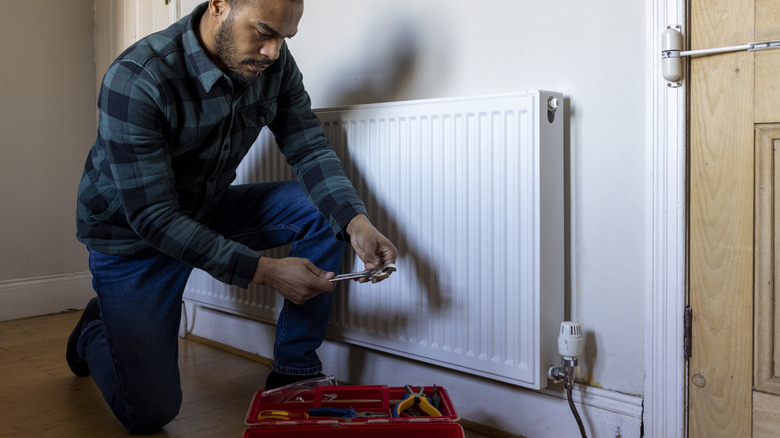Heating Laws Every Renter Should Know For Winter
As temperatures drop, nothing is worse than a freezing cold house or apartment that won't warm up because of a heating problem. While you may need to brave the cold while outside in the winter, you shouldn't have to do so in your home. Luckily, there are laws to help prevent renters from having to deal with this problem. As a renter, you may already know about laws that require landlords to provide safe and habitable environments, and a working heating system is part of that requirement. So, once you know the details of how these heating laws function for you and your landlord, you shouldn't need to try out all kinds of creative hacks for a warmer house this winter. Whether your rental is too cold already or you just worry about keeping warm this winter, it's important to know all about heating laws in your area.
From the actual temperature of the air in your space to water temperatures, there are a number of ways in which landlords are required to keep your home comfortable and warm in the winter. Exact temperature requirements and the time of year for the requirements may vary based on your location, but maintaining a habitable environment is necessary everywhere. If your landlord is not following laws about heating in your area, then you can take action by requesting a solution, and even escalate the issue further if your landlord does not act quickly to ameliorate the situation.
Heating laws vary by location
While landlords everywhere in the United States are required to maintain their units so that they are safe and livable, the extent of this can vary by state, county, and even city. For example, in Chicago, Illinois, there is a heat ordinance that requires buildings to have an indoor temperature of at least 68 degrees Fahrenheit from 8:30 a.m. to 10:30 p.m., and at least 66 degrees Fahrenheit from 10:30 p.m. to 8:30 a.m., from September 15 through June 1. Some building types have slightly different requirements, but the ordinance applies to houses, apartments, and even hotel rooms. In Connecticut, there is a statewide minimum of 65 degrees Fahrenheit all year in all residences. To find the requirements in your area, you should check your state laws, local laws, and lease agreement. Online research will help you confirm which laws apply to you.
Also, keep in mind that while landlords must provide the means for the heating, such as working heaters, it may be the tenant's responsibility to control the thermostat and pay the energy bill. Depending on your location and access to the thermostat, as a renter, you may be able to set the temperature lower than the heat ordinance requirement, but make sure not to go too low, as keeping your home too cold in the winter could cause serious issues. Thermostats set to under 55 degrees can cause problems like freezing pipes in the winter. Whether you have control of the heating or not, there are things you can do if your unit isn't warm enough.
What to do if your unit is not warm enough
If you've checked your local laws and determined that your home's internal temperature is below the required minimum, there are some actions you can take, as heat is one of the things you can legally ask your landlord to improve or replace. First, you should contact your landlord immediately for any necessary repairs. While you may be able to call, text, or email your landlord, you should also send a letter or written request as well, and keep a copy so that there is documentation of the request. When a broken heater results in an internal temperature that violates your local heating ordinance, your home can be considered uninhabitable, and the repair should be completed urgently. If your rental's internal temperature is above the required minimum but you're still cold, you may need to look for alternative solutions like space heaters. Just make sure that the warming solution you choose is allowed in your space according to the lease.
If your landlord does not respond quickly or refuses to make the repairs, you can file a complaint with your local government. Some cities also have programs that assist with temporary housing while the heat is being repaired, which may be worth looking into if the repair will take some time. Often, landlords will have up to 14 days to complete repairs. Overall, it is your landlord's responsibility by law to provide a livable space, and renters should absolutely know that providing the means for adequate heat is an important part of that.


